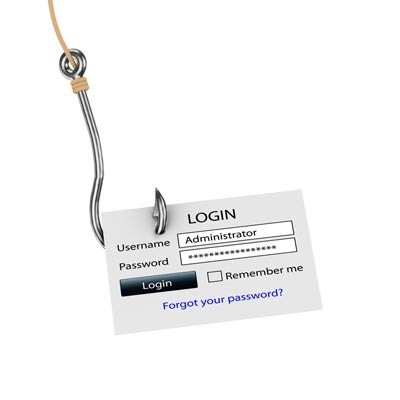Hackers are always trying to find creative and new ways to steal data and information from businesses. While spam (unwanted messages in your email inbox) has been around for a very long time, phishing emails have risen in popularity because they are more effective at achieving the desired endgame. How can you make sure that phishing scams don’t harm your business in the future?
Argentum IT LLC Blog
Few security problems are more dangerous than a network breach. Considering how much you could lose from an unexpected bout with a hacker, it’s no surprise that businesses are concerned. Yet, even some of the most troublesome threats like phishing attacks are often ignored. A new study introduces the groundbreaking thought that phishing attacks should be at the forefront of a business owner’s mind regarding network security.
The 2016 United States presidential election was an ugly one for multiple reasons--chief among them the accusation that hacked voting machines could have altered the outcome of the election significantly. Thankfully, there are steps being taken to alleviate the worries that third parties might alter the outcome of such important events.
Is your business prepared to handle all kind of online threats? A recent study shows that it probably isn’t. According to the think tank Ponemon Institute, four out of five businesses don’t have the infrastructure or security experts they need to spot and prevent incoming cyber attacks from succeeding. This is a significant statistic that can’t be ignored, especially if you want to secure your business.
There are many types of online threats that the average business owner needs to understand and be prepared for. The problem here is that no two threats are alike, and they all perform different functions. One thing that all threats have in common is that they want to disrupt your operations in any way possible. To help you better prepare your organization for these threats, we’ll discuss a particularly dangerous malware: the rootkit hack.
There are benefits to being a small business. Being small provides all sorts of flexibility, including the ability to make decisions quickly and without having to go through so many hoops. Plus, you have a smaller workforce, which makes for a more personal experience. However, this also leads to a rather unfortunate side-effect of believing that you’re immune to being hacked.
It’s safe to say that hacking is a frowned-upon practice, but that hasn’t stopped cyber criminals from attempting to turn a profit off of it. This practice has led them to target nonconventional organizations, including hospitals and other healthcare facilities. However, just because a hacker can target a hospital, does this mean that they should? This is a topic of some debate amongst hackers, whom, believe it or not, actually do have some sort of ethical standards.
Hackers are always trying to come up with new ways to steal or corrupt sensitive data. If you don’t take the opportunity to protect your systems, you could be staring down a major data loss incident or security discrepancy. Here are five ways that you can protect your business’s infrastructure from hackers waiting to steal your data.
Tomorrow is the big day--the day when the American people cast their votes for the next President of the United States. While there may still be a few undecided voters out there, something that they may not be considering includes the machines that they will be using to cast their ballots. It turns out that there may be a major problem with some voting systems in the form of weak cyber security.
There’s no question about it; hackers make things difficult for businesses of all industries and sizes. They go out of their way to steal data and turn a profit off of it, as well as misrepresent organizations and individuals. The business environment is chaotic enough without hackers mucking everything up. However, the recent hacking attacks behind the group Anonymous have evolved the persona of the typical hacker into something very different.
Let’s say that you’re walking down the hallway of your office when you bypass a team member from accounting. They tell you that the wire transfer you requested has been completed successfully, but you don’t remember ever asking for such a thing. You take a look through your books and see that a ton of money was sent to some random stranger who took on your identity.
If you ever question why your business needs to take advantage of network security and all of its components, consider this fact: the average cost of data breaches, worldwide, has increased by 29 percent since 2013. Believe it or not, the average cost per data breach is now an astounding $4 million! Now, we’ll ask you again; can your business afford to deal with a data breach or data loss disaster?
One of the most popular methods of online hacking attacks involves what’s called a brute force attack. This is when a hacker overwhelms a login system with multiple attempts until the hacker is able to log in and access the system. They are dangerous attacks that could expose not just sensitive information, but also leave you vulnerable to ongoing hacks.
One of the latest vulnerabilities in open-source software can be found in 7zip, a file archiver and decompresser. 7zip has been found to have several security vulnerabilities which have software developers rushing to fix their products. The damage done extends far beyond 7zip, reaching both people who use 7zip itself, and developers who have used the technology in the creation of their own tools and software.
 Hackers have proven that they will do whatever it takes to get to your valuable assets, even if it means taking advantage of physical objects that work alongside a specific frequency. As it turns out, this is exactly how hacking a garage door works, and all it takes is a decade-old communications device to capture the frequency and unlock any garage door that utilizes it.
Hackers have proven that they will do whatever it takes to get to your valuable assets, even if it means taking advantage of physical objects that work alongside a specific frequency. As it turns out, this is exactly how hacking a garage door works, and all it takes is a decade-old communications device to capture the frequency and unlock any garage door that utilizes it.




















